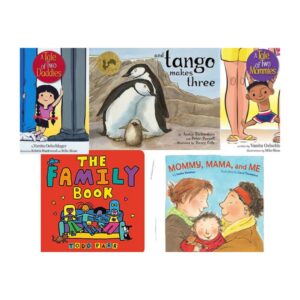
How Much Do Biological Ties Really Matter?
Sperm and egg donation never promises a relationship. It’s true


The above is from an excerpt of her book, I Know Why the Caged Bird Sings.
When she was about eight years old, Maya Angelou stopped speaking. She thought her voice had killed a man. For almost six years, she only talked to her older brother, Bailey.
They’d endured a tumultuous childhood in the Jim Crow South. Deep-seated racism exacerbated feelings of being rejected and abandoned by their parents. After getting divorced, they put the children on a train and sent them to live with their paternal grandmother, who they called Momma, in rural Arkansas. Angelou was just three years old.
They eventually went to live with their mother and her live-in boyfriend, who sexually abused Maya. She testified against him. He was convicted and sentenced to a year and a day in prison but was released later that afternoon. Four days later, he was found beaten to death, likely at the hands of her uncles.
Angelou, who was then seven-and-a-half, worried her words had killed him.
Writing her life story helped Angelou transform trauma into triumph. She knew the weight of an untold story. She also looked at her life and saw its worth.
In my 23 years working with foster, kinship and adopted children I have heard the anguish of untold stories. Tears of relief as I told a child he wasn’t born in prison or destined to be a criminal. Tears of joy of being told of a half sibling they were separated from and yes, tears of pain when telling of abuse suffered when they weren’t believed.
How could we as social workers be part of the most monumental decision to separate children from their birth families but not think it was our responsibility for them to know their own identity. How could this not be a human right?
Cutting a child off from their history and expecting them to become psychologically healthy seems a tragically ridiculous expectation.
I believe deeply in the need for therapeutic life story to help adoptive, fostering and kinship families understand their children and build attachment. I feel in my bones that children need to explore the untold to know that it is manageable.
Our service is the beginning of that exploration.

Sperm and egg donation never promises a relationship. It’s true

Being lesbionics in rural Nova Scotia meant our birth plan

The stories we are told as children play a role in who we become when we grow up. After all we eventually narrate our own lives. The character who inhabits books and screens have an impact on how children see themselves and others. Representation is so important.